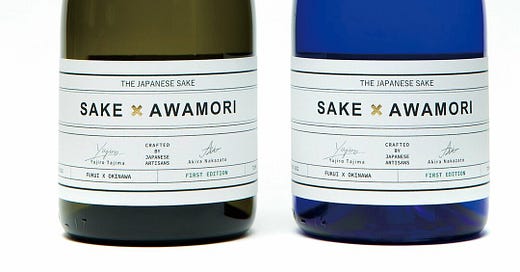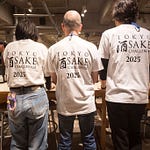Welcome to Issue #71 of SIN.
Japan managed to get itself in the news in the last month for all the wrong reasons when the National Tax Agency launched a campaign looking for proposals on how to encourage young people to consume more alcohol - especially at home.
Naturally, the story was seized upon, both locally and abroad, as many were dismayed at the irresponsible message the government was seemingly sending to a generation that has decided not to partake in Japan's drinking culture.
Unfortunately, the reality is the industry (particularly the sake industry) does actually need to attract more drinkers. There is arguably nothing inherently wrong with alcoholic beverage producers advertising in a way to entice more customers. That's what businesses do.
In this situation, the larger problem is the government taking such a public stand in expressing this so brazenly. While they surely have their own interests, including maintaining, if not increasing, tax revenue from alcohol sales, it would behoove their cause to be more prudent in choosing their wording. If it were the sake industry (or the whisky industry etc.) on its own, without government backing, pushing a campaign to attract more drinkers to sake, then it wouldn't be as much of an issue. But it comes off as quite incongruous since there are more than a few people that feel the same government that is now encouraging people to drink more also placed a good chunk of the blame for rising COVID numbers on alcohol consumption.
But let's not be swayed from our mission. Sake (and all alcoholic) consumption should always be encouraged responsibly. So when community health and the viability of the industry are both important issues, perhaps the concept of "drink less, drink better" might be a better approach. Have that one glass, but instead of choosing the cheapest in the store or on the menu, search out quality. Spend a little more on quality sake and you just may reward your palate, your health, and the sake industry at the same time.
And now for the news...
Sake With A Splash Of Awamori
Fukui- Many readers are familiar with the aruten process of brewing sake with a minor addition of distilled alcohol which can help impart aroma, lighten body and prevent the proliferation of bacteria. The vast majority of sake is made using this process, especially but not exclusively inexpensive sake sold in cartons, known as “pack sake.” In many cases the distilled alcohol used is made from sugar cane or molasses and imported from regions such as Brazil.
Yujiro Tajima, owner-toji of Tajima Shuzō (producer of Fukuchitose) in Fukui Prefecture, often questioned why the standard was to use alcohol made overseas with raw materials other than rice. After considering the possibility of instead using awamori, the Okinawan distilled spirit made from rice, Tajima consulted with his old classmate from Tokyo Agricultural University and awamori producer, Akira Nakazato of One Spirit.
Nakazato selected five different awamori as possible alternatives from which Tajima chose Shō, Mizuho an awamori distilled three times as opposed to the regular practice of single distillation.
Tajima used Gohyakumangoku rice from Fukui Prefecture milled to 50% and Sakura flower yeast to produce the product simply labeled, SAKE x AWAMORI.
The sake is sold in black bottles in Fukui and blue in Okinawa.
Tajima and Nakazato plan on continuing the project next season with a new design.
Source - Diamond Jp
JG: This interests me as awamori is the only distilled beverage I actually like. It is distilled from Thai rice, and uses black koji, which gives it high citric acid, and can be aged and blended in unique ways. I look forward to tasting this product.
田嶋酒造 (福千歳), 五百万石 , 尚 MIZUHO
Whisky Blender Lends Some Expertise
Kyoto- Tokubee Masuda, chairman of Masuda Tokubee Shōten (producer of Tsukino Katsura), and Seiichi Koshimizu, chief blender, at Suntory Yamazaki Distillery have collaborated to produce a new blended aged sake.
Listen to this episode with a 7-day free trial
Subscribe to Sake Industry News to listen to this post and get 7 days of free access to the full post archives.












